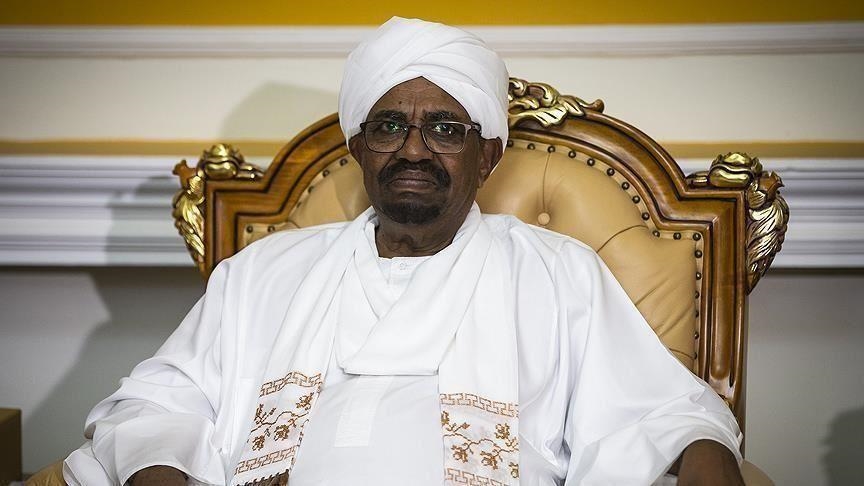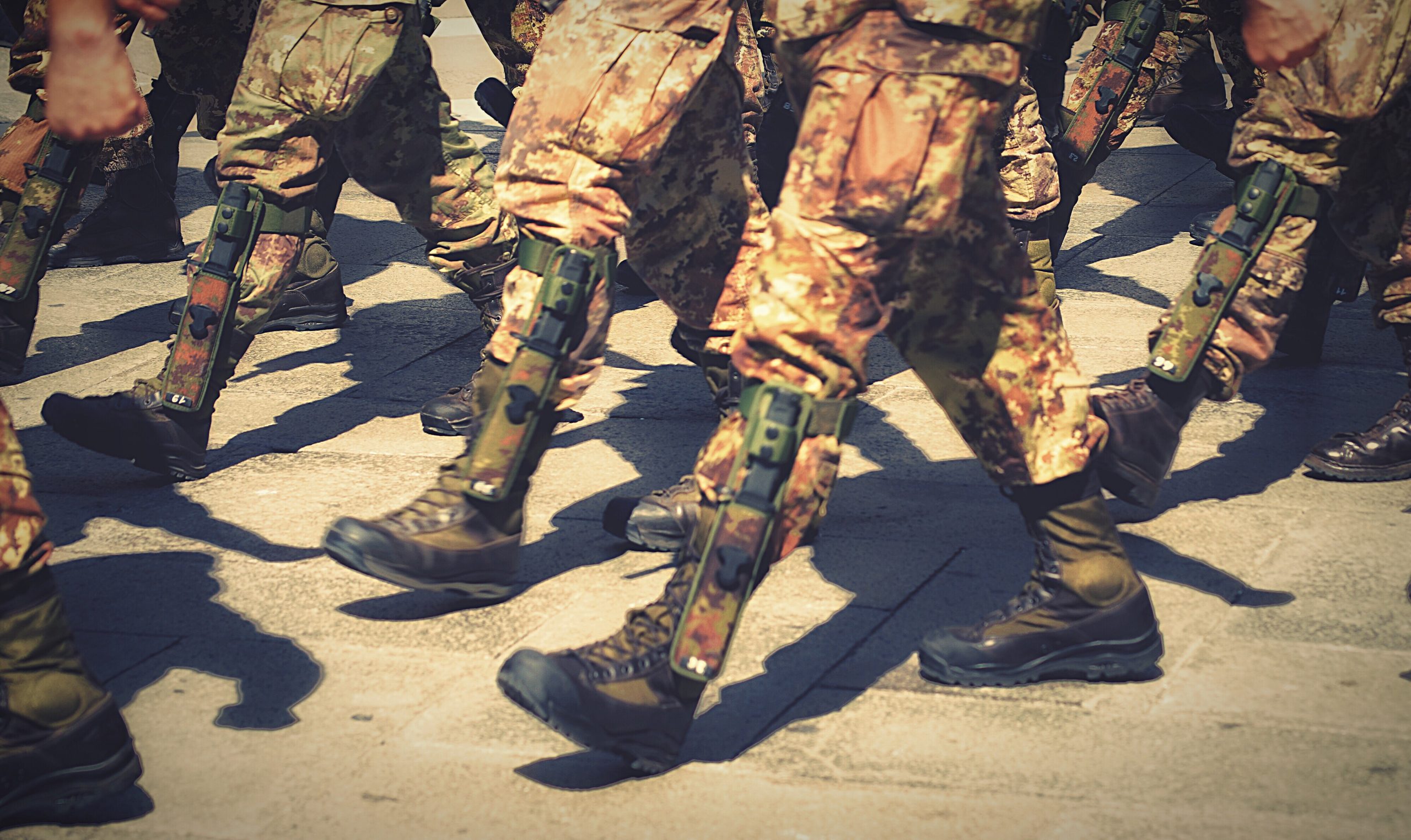EAST AFRICA
SOUDAN – Postponement of the trial of Al-Bashir and the sponsors of the 1989 coup

Until further notice, due to the presentation by the defense committee of protest notes to the court, against what it considers to be an “abuse” committed by the prosecution representative.
A Sudanese court announced the postponement until further notice of the trial of ousted President Omar al-Bashir and 27 of his collaborators involved in the “coup d’état”, following an objection formulated by the committee of defense against “abuse” committed by the prosecution representative.
The Sudanese Official News Agency (SUNA) declared that “the court in charge of the coup plotters case of June 30, 1989 received protest notes from members of the defense committee, against what they considered an “insult” uttered against them by the representative of the prosecution (the prosecutor) who qualified them as “irresponsible” during the last hearing on May 25th.
According to the same source, the reactions of defense lawyers in court were mixed, “among those who are in favor of filing a request with the court allowing them to lodge a complaint against the representative of the prosecution, the prosecutor Abdelkader Al- Badawi, and those who simply ask for an apology ”.
“The court adjourned the hearing for next Tuesday in order to hear the prosecution representative’s response to the defense committee’s protest notes”, without announcing a date for a new hearing relating to the said trial, reports the SUNA Agency .
The first hearing in the trial of El-Bashir and of those accused of having committed the 1989 coup d’état was held on July 21, 2020. The accused are tried under articles 96 and 78 of the criminal law Sudanese in 1983, in particular for “undermining the constitutional system” and “participation in a coup”.
In May 2019, Sudanese lawyers filed a petition with the Khartoum Attorney General against Al-Bashir and 27 others on the same charges. The same month, the prosecution opened an investigation into the matter.
Besides El-Bashir, other leaders of the People’s Congress Party (founded by the late Hassan Al-Turabi) are among the accused, namely; Ali Al-Hajj, Ibrahim Al-Senoussi and Omar Abdel-Marouf, as well as leaders within the deposed regime, such as Ali Othman, Nafaa Ali Nafaa, Awad Al-Jaz, Ahmed Mohammad Ali Al-Fashaweya.
It should be remembered that on June 30, 1989, Al-Bashir carried out a military coup against the government of Prime Minister Sadiq al-Mahdi, to subsequently become President of Sudan. At the time, he assumed the post of chairman of the Board of Directors of the “Revolution of National Salvation”.
After 3 decades in power, Omar al-Bashir was imprisoned in Kober prison, after being dismissed by army commanders on April 11, 2019, following popular demonstrations against the deteriorating economic situation.
Source : AA.COM / Translated from Arabic by Hajer Cherni
EAST AFRICA
SOMALIA – Al-shebab multiplies attacks in Mogadishu

Radical Islamists al-Shebab claimed responsibility for a suicide attack on Sunday, 18 May 2025, against a barracks in Mogadishu, the Somali capital, which caused several deaths. On Tuesday, May 20, 2025, several mortar shells hit the Halane neighborhood, near the airport very early this morning, an attack claimed in the wake by the terrorist group Al-Shabab.
At least 5 mortars hit the Halane neighborhood, around 5am on Tuesday, confirmed a European security source in the area. Witnesses at Aden Adde International Airport said they saw several shots and heard explosions.
Very quickly, the al-Shebab group claimed responsibility for this attack through one of its websites. He called the Halane neighbourhood a “command centre” for his enemies.
Located near the airport, Halane is a highly secure area. It houses the offices and residences of personnel from UN missions, the African Union, various NGOs and embassies.
This new attack came two days after a suicide bomber blew himself up near the Damaanyo military base in Mogadishu, killing at least 13 recruits. An attack condemned on Monday by the Arab League and the European Union.
For several months, the shebabs have been conducting a violent offensive in the states of central Somalia, which border on the capital. According to the US War Research Institute, they launched twice as many attacks per month in 2025 as in the previous year.
Source: RFI, Gaelle Laleix
POLITICS
SUDAN – Both generals concentrate around military bases after violent fighting

Fighting raged on Tuesday, June 27, 2023 in Khartoum between the paramilitaries threatening to take over the city and the army, which is now calling on all young people in Sudan to enlist under the flag on the eve of the Muslim holiday of Eid al-Adha.
Fighting between the army, led by General Abdel Fattah al-Burhan, and General Mohammed Hamdane Dogolo’s Rapid Support Forces (FSR), known as “Hemedti”, is now concentrated around military bases. Since the beginning of the war on 15 April, the FSR have been present en masse in the residential areas where they had long established their bases. The army, however, tries to play its main asset: the air, which it controls alone, without its infantry succeeding in gaining a foothold in the immense city crossed by two arms of the Nile.
For several days, the FSR have been trying to take the last bases of the army in the capital where millions of people are still hiding – nearly a million and a half have left, fleeing stray bullets and water and electricity cuts in a grueling heat. The FSR took the police headquarters and its huge arsenal in southern Khartoum and harassed the army on bases in central, northern and southern Khartoum on Tuesday, reported residents to AFP. If they take these last bases, they will have taken control of Khartoum, experts say.
EAST AFRICA
TANZANIA – President meets with Chairman of the Board and CEO of the Merck Foundation

The Chairman of the Management Board and the CEO of the Merck Foundation meet with the President of Tanzania to discuss the scaling up of their health programmes to transform the patient care landscape in Tanzania. We have provided 37 one-year and two-year master’s scholarships to Tanzanian doctors in partnership with the Tanzanian Ministry of Health, and we will continue to increase the number of physician awards in many underserved and critical medical specialties,” said Senator Rasha Kelej, CEO of the Merck Foundation.
The philanthropic branch of Merck KGaA Germany, highlights its commitment to building health care capacity in Tanzania at its high-level meeting with H.E. Dr. Samia Suluhu Hassan, President of the United Republic of Tanzania. The discussion led by Professor Dr. Frank Stangenberg Haverkamp, Chairman of the Board of the Merck BOT Foundation and Senator Dr. Rasha Kelej, CEO of the Merck Foundation, to discuss the scaling up of Merck Foundation programs to build health care capacity and transform the patient care landscape into more than 36 critical and underserved medical specialties in Tanzania.
The Senator said: It was a pleasure to meet the President of Tanzania. Our vision is to provide quality and equitable health care solutions to underserved and vulnerable populations, leading Africa and the rest of the world to a healthier future. We are committed to transforming the landscape of patient care in Africa through our scholarship programs. To date, more than 1,580 scholarships have been awarded to young doctors in 50 countries in 36 critical and underserved medical specialties.
It was a great honour to meet with H.E. Dr. Samia Suluhu Hassan, President of the United Republic of Tanzania, to highlight our continued commitment to health and social development in Tanzania. She is a great leader; we African women are truly proud of her great achievements and success. She is a true role model for all of us.”
The Merck Foundation recently hosted the Merck Foundation Alumni Summit in Tanzania to meet their alumni and an awards ceremony to recognize the winners of the Merck Foundation Awards. The Summit was co-chaired by Prof. Dr. Frank Stangenberg Haverkamp and Senator Dr. Rasha Kelej, CEO of the Merck Foundation. During the Summit, the Merck Foundation also organized the 2nd edition of its Media Training on Health for Tanzanian media representatives in partnership with the Media Council of Tanzania and the Dar es Salaam City Press Club (DCPC). The training was conducted to highlight the important role that the media play in influencing our society to create cultural change in order to solve a wide range of social and health problems such as: breaking the stigma associated with infertility, supporting girls’ education, empowering women, ending child marriage, ending FGM, stopping GBV, raising awareness about diabetes, etc.
In addition, the CEO of the Merck Foundation announced the call for nominations for 8 major awards for media, musicians, fashion designers, filmmakers, students and potential new talent.




